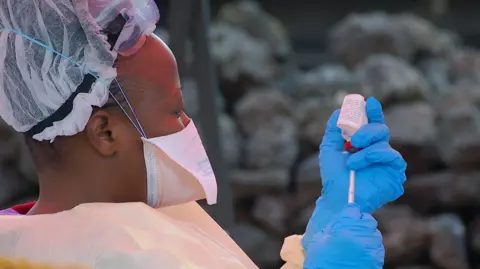Sierra Leone is currently engulfed in a serious outbreak of mpox, with health officials observing an alarming increase in infections nationwide. The situation has reached a critical point, as the country struggles to manage the spread of the virus amid a backdrop of limited resources and financial constraints.
In an effort initiated in January, Sierra Leone's health authorities opted to treat mpox patients at home. This decision aimed to prevent individuals with other critical health issues, like malaria and pregnancy complications, from avoiding medical attention. However, this approach has had unintended consequences, resulting in rapid transmission of the virus in densely populated urban areas. Consequently, cases have surged throughout all 16 regions of Sierra Leone, including Freetown, the capital city.
In response, the government has established several centers dedicated to isolating and treating infected patients. Unfortunately, these facilities are quickly becoming overwhelmed, as they lack sufficient beds to accommodate the growing number of cases and have received only a fraction of the essential vaccines required to combat the outbreak.
A public health initiative that aimed to trace and monitor potential exposure to mpox came to a halt in April due to a shortage of funds. As a result, the health ministry's urgent requests for vaccines and additional resources have received little response, stalling progress in addressing the outbreak effectively.
Dr. Ngashi Ngongo, who is responsible for overseeing the mpox response for the Africa Centres for Disease Control and Prevention, noted the weak pre-existing health system in Sierra Leone is now significantly exacerbated by a financial crisis and shrinking development aid. As cases continue to rise, the government and health officials are pressing for international support to reinforce their response efforts and help control the spread of the virus.



















